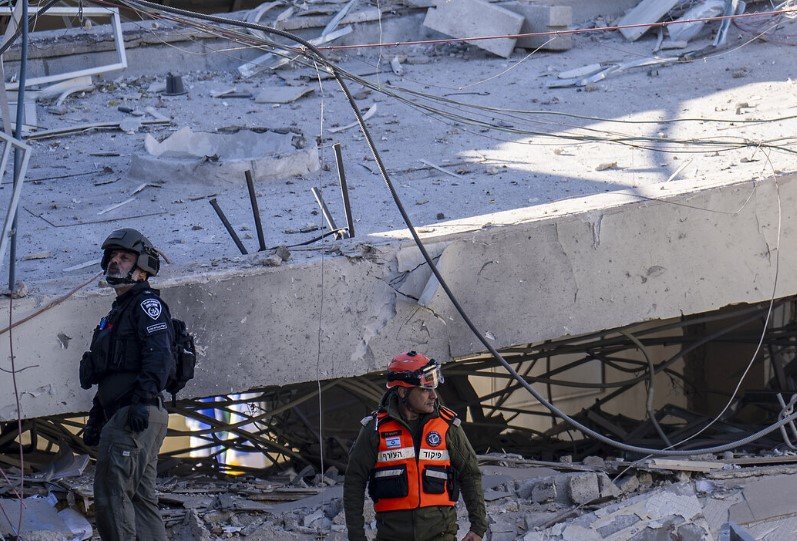Yemen’s Houthi-led forces are ramping up their threats against Israel, warning that Tel Aviv’s main airport could face more missile attacks if the assault on Gaza doesn’t stop.
The warning comes just a day after a hypersonic missile reportedly struck Ben Gurion Airport, sending flights into chaos and rattling nerves across Israel’s central region.
Houthi Forces Say More Strikes Are Coming
The Yemeni military has made its message loud and clear: Tel Aviv is not off-limits.
On Wednesday, Yemen’s armed forces—backed by the Ansarallah movement in Sanaa—issued a bold statement claiming they would not hesitate to strike Ben Gurion Airport again. “We may once again target Ben Gurion Airport or any other airport deep inside the occupied territories,” the statement read.
Their reasoning? The blockade on Gaza hasn’t ended, and neither has Israel’s military offensive.
That same day, Yemeni forces claimed they had already fired a hypersonic missile at the airport. It marked the third strike within 24 hours, part of a growing escalation that seems to be dragging in regional actors far from Gaza’s borders.

Flights Disrupted, Airspace on Edge
The alleged missile strike on Ben Gurion Airport caused major disruption—though Israel has yet to officially confirm the extent.
According to Yemen’s statement, the missile forced flight delays and diverted incoming aircraft, grounding air traffic for almost an hour. Footage circulating on social media showed travelers taking cover and emergency protocols kicking in across the airport.
One sentence here, just to break it up.
This isn’t the first time Israel’s airspace has been rattled during its war on Hamas. But this was different. Hypersonic missiles travel at several times the speed of sound, making them hard to intercept and even harder to predict. Their use could represent a tactical shift.
Why Yemen Is Involved at All
To an outsider, Yemen’s interest in Israel might seem out of place—given its own civil war, economic collapse, and humanitarian crisis.
But the Houthis, backed by Iran, have long cast themselves as defenders of Palestinians. Since Israel launched its military campaign in Gaza last October, the group has fired drones, missiles, and naval threats in a bid to pressure Israel and disrupt Red Sea shipping lanes.
Their logic goes beyond sympathy. It’s strategic.
-
Pressuring Israel makes the Houthis look strong at home and in the region.
-
It boosts their credentials with Iran, which funds and supports their operations.
-
It diverts attention from their internal struggles, including economic misery and factional splits.
A Broader Regional Powder Keg
The Gaza war isn’t just between Israel and Hamas anymore. It’s roping in militias and actors from Lebanon to Iraq to Yemen—many aligned under what Tehran calls the “Axis of Resistance.”
So far, Israel has responded with targeted strikes across the region, hitting Hezbollah units in Lebanon and Iranian-linked militias in Syria. But it’s been more cautious when it comes to Yemen. That could be changing.
“We will defend our people by any means necessary,” Israeli Prime Minister Benjamin Netanyahu said Tuesday night. He didn’t mention Yemen directly, but analysts believe he was alluding to the strikes.
And there’s worry that a retaliatory move on Yemen could spark even wider conflict, potentially involving Iran directly.
This is where things get dicey.
What Hypersonic Missiles Mean for the Conflict
Hypersonic weapons are the new wildcard in Middle East warfare.
They fly low, fast, and maneuver unpredictably—making them tough to shoot down with standard missile defense systems like Israel’s Iron Dome or David’s Sling.
According to Jane’s Defence Weekly, the types of hypersonic missiles in the Houthis’ arsenal may have been supplied by Iran or adapted from existing ballistic systems.
Growing Alarm Among Gulf States
It’s not just Israel that’s worried.
Gulf countries—especially those with economic ties to Israel or close proximity to Yemen—are on edge too. The UAE and Saudi Arabia have reportedly boosted air defenses in anticipation of spillover attacks or Houthi retaliation.
Qatar has called for “immediate de-escalation,” while Jordan quietly reinforced its border units.
Even Egypt, often silent in regional skirmishes, issued a statement warning that the conflict could “extend beyond what any party intends if threats continue.”
Just one sentence here again, to keep the rhythm unpredictable.
The Bigger Picture: A War That’s Spilling Over
The more Israel pushes into Gaza, the more regional actors appear willing to engage—some out of ideology, others for leverage.
Yemen’s latest threats are part of a pattern. What started as a localized war is now drawing in armed groups and governments across the Middle East. Iran’s support is central, but each group also has its own goals.
And now, Israel is facing a real dilemma: Does it retaliate against Yemen and risk inflaming the region further—or absorb the blows and stay focused on Gaza?
